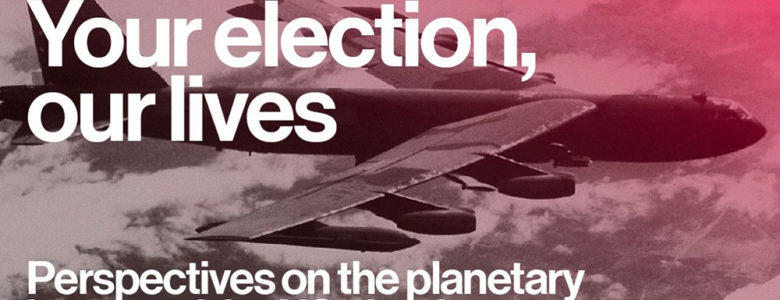
Your Election Our Lives: Perspectives on the planetary impact of the US election
From Mexico to Palestine, the US election will have an impact far beyond its borders.
This is why the Progressive International (PI) decided to host an event to discuss the implications of the US elections for people and their communities around the world.
The event included:
- Tatiana Clouthier, Diputada Federal, Mexico
- Guillaume Long, Former Foreign Minister, Ecuador
- Dr. Yara Hawari, writer and activist in the Palestinian feminist movement Tal3at
- Ammar Ali Jan, Haqooq-e-Khalq Movement, Pakistan
Watch it now!
Highlights
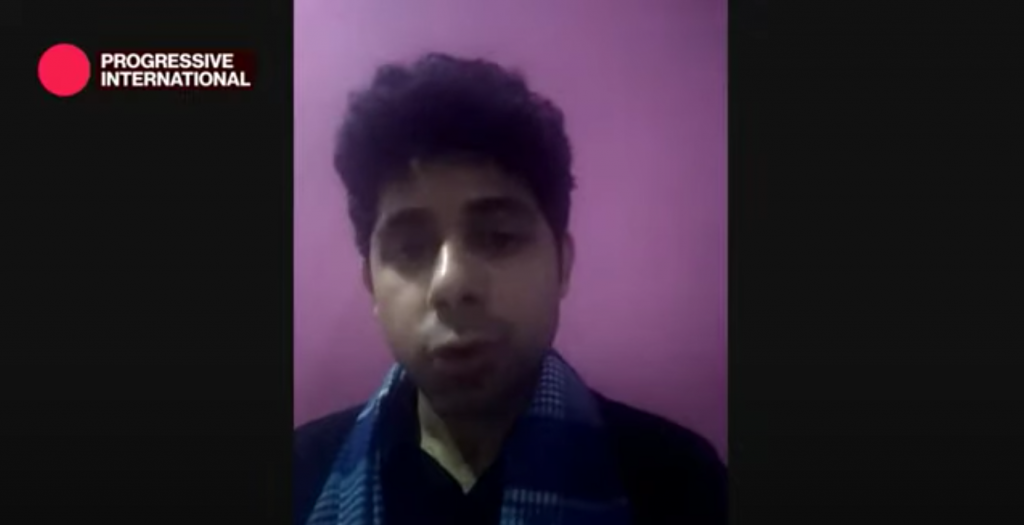
Ammar Ali Jan
“For someone who is being bombed by a drone, it doesn’t really matter whether the person who is droning them speaks good English or bad English, is erratic on Twitter or is more dignified on Twitter. It’s a question of life and death.”
“For people in Pakistan, the one legacy of the Biden-Obama era is the illegal drone strikes. There were almost 800 drone strikes during the Obama era. Many targeted weddings, schools, council meetings of the elders. None of them were officially acknowledged.”
“The US language of inclusivity does not acknowledge the fact that no matter who comes into power in the White House will inherit a machine that is imperialist, violent, exclusive, racist, and which tries to dominate the lands and resources of others.”
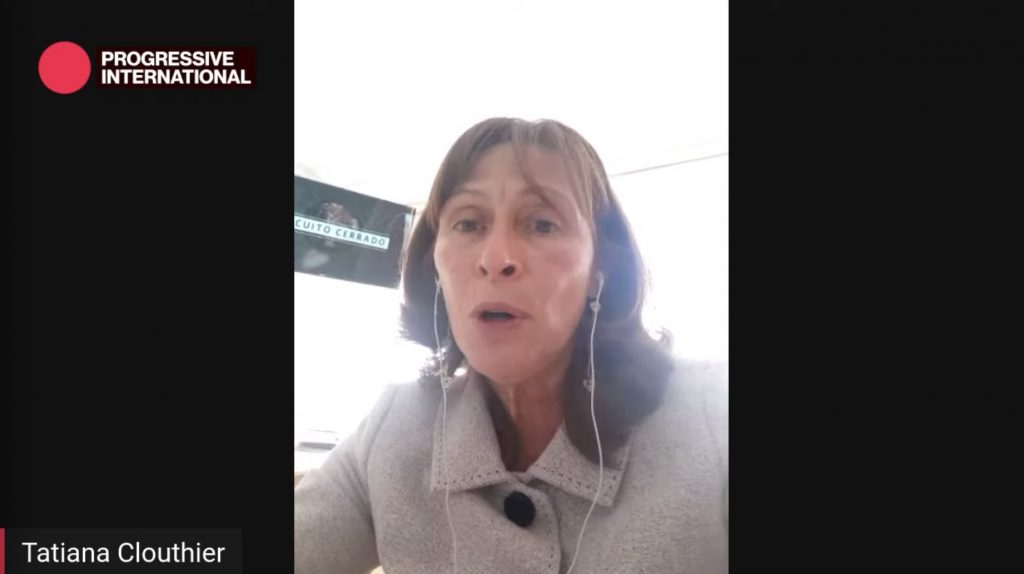
Tatiana Clouthier
“We share a border… It doesn’t matter who is the president in the US and who is the president in Mexico. We have to work together.”
“Trump spoke very badly about Mexicans. That doesn’t mean that the numbers — the immigration problems — were better or worse with one or another president. Neither Republicans or Democrats have had a very… nice approach to immigration.”
“Something has to be done about the US profiting from gun sales to Mexico. We have to do something about guns being introduced into our country, because that creates many problems.”
“It’s still not clear what’s going to happen in the US legally. But we are ready to work with either president, with either party.”
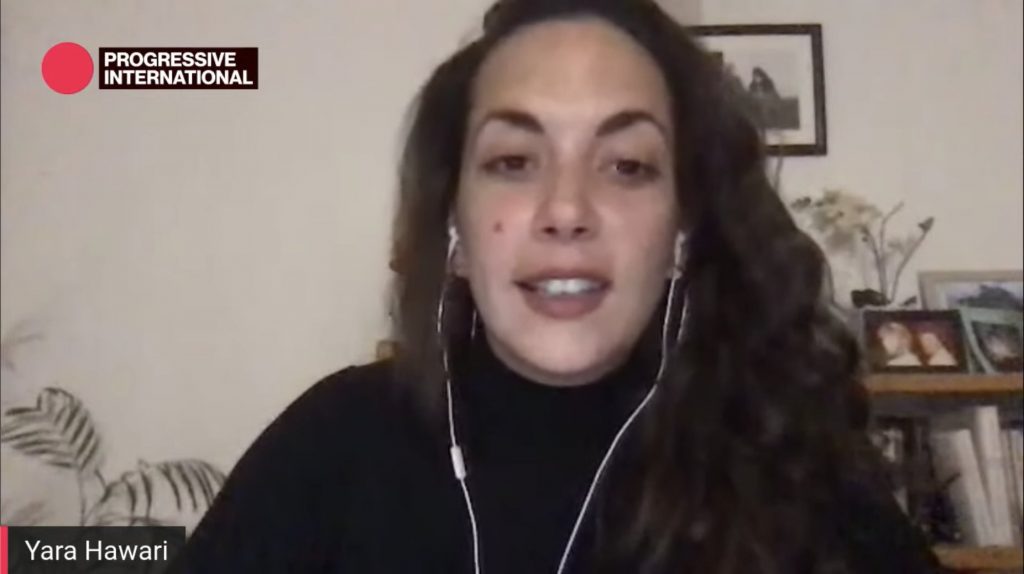
Yara Hawari
“After one of the largest protest movements in US history calling for an end to institutional violence against black people and defunding the police, the Democrats have essentially elected a ‘Top Cop’ as Vice President.”
“Israel is seen generally as a Western outpost in an otherwise ‘savage’ Middle East. So maintaining Israel’s military qualitative edge in the region is really key to US interests.”
“Quoting president-elect Joe Biden: ‘We need to stop apologising for our support for Israel. It’s the best $3 billion investment we make. If there was not an Israel, the US would have to invent one. Israel is the US’s greatest strength in the Middle East’.”
“As many illegal Israeli settlements in the West Bank were built under Bush as under Obama.”
“Biden is proposing to go back to the old framework of the supposed ‘Peace Process’, in which they pump money into the Palestinian territory with lots of conditions, effectively holding the Palestinians hostage.”
“The day of the US election, Israel destroyed an entire Palestinian community. This is a war crime under international law. An EU spokesperson called it a ‘regrettable trend’. He put a war crime on par with crocs or a gender reveal party.”
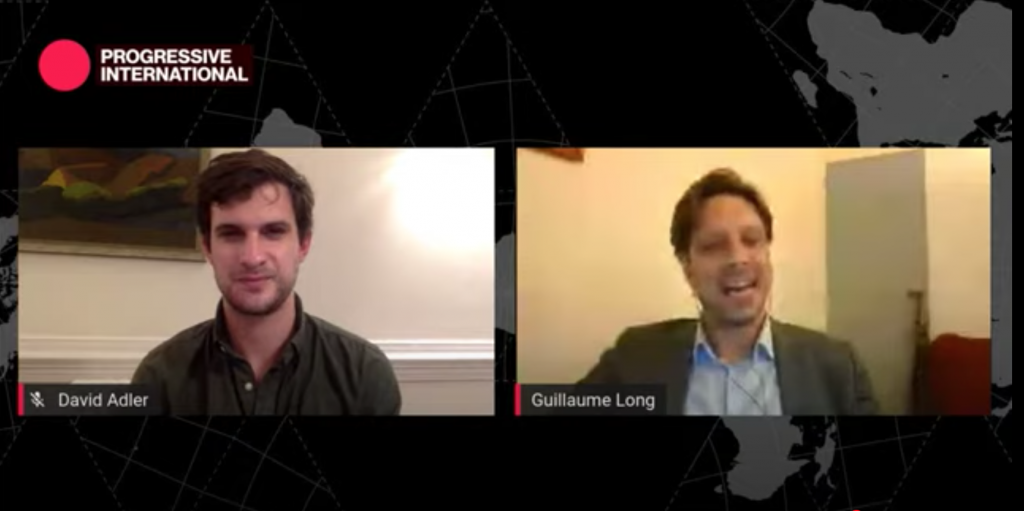
Guillaume Long
“Trump won Florida. That’s very bad news for Latin America because it means the neo-McCarthyist, anti-socialist, Cold War nostalgia message that Trump campaigned on, particularly with Cuba and Venezuela, triumphed. Biden will try to play that card.”
“Generally speaking, there is no real difference with Biden. No change in doctrine towards Latin America, with the US wanting a docile hemisphere rather than a democratic hemisphere. For progressive forces in Latin America, the US is not going to be our ally.”
Find out more about the Progressive International. Follow the Progressive International on Facebook, Twitter, Instagram and become a member today!
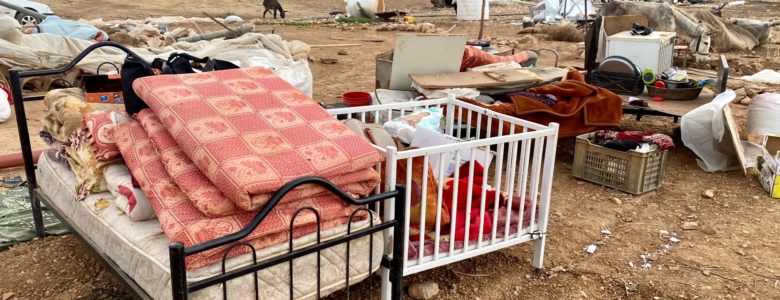
Palestinians are suffering from the skewed application of international law
Another slap in the face of the “international community” and the international law.
The latest disfranchisement of Palestinians has been observed as the Israeli occupying forces have demolished a Palestinian village in the Jordan valley — including nearly 80 homes. The “administrative detention” — also known as the kidnapping — of Maher Al-Akhras who recently ended his 103 days hunger strike should not be a “business as usual” event for the “international community” by giving the usual condemnation and lip service to the Palestinians.
Don’t be illusioned by the so-called “Peace deal” between the Israeli regime and the regimes in the UAE and Bahrain. These deals were promoted by the UAE as a “bargaining tool” to halt the annexation of Palestinian land. These are only weapons deals for regimes to continue their subjugation of the regions’ societies on the one hand and a way to create a pact against the so-called Iranian “threat” on the other hand. The European Union even praised the deals as a ‘positive contribution to peace and stability to the Middle East.’ However, many observers stated that such deals will bring the middle east further to the cliff’s edge.
A short excerpt from Nader Hashemi’s latest essay on the so called “peace deals” gives us a hint to where these deals could lead:
“The future of the Middle East looks bleak. All the key social indicators suggest that the region is headed for a coming explosion. The current authoritarian order is unsustainable given the volatile mix of repressive states with youthful populations and dim economic prospects. When the next Arab uprising for dignity and democracy takes place, it will be angrier and more violent than the one that preceded it. A key target of this anger will be leaders of the “Axis of Arab Autocracies,” but also their Israeli ally, an ally that is today proudly and openly helping to sustain their autocratic rule.”
This continuous subjugation of the region’s societies and the complicit involvement of the EU for the sake of “stability” and the free flow of capital is just a recipe for disaster.
The skewed treatment of international law.
Another example of land grabbing and the continuous failing to abide by international law from countries with colonial histories is the case of Chagos Islands, that lies between Sri Lanka and Madagascar. The UK had split them from Mauritius in 1965 and since then maintained administrative control over the islands. In 2019, the ICJ in Hague has delivered a judgement that the UK has to give the islands back to Mauritius that was passed as non-binding resolution by UNGA. However, the UK has refused to meet the deadline to hand the island back. This is another example of how national ruling interests are still drunk with their own colonial legacy.
This is not the first slap nor the last in the face of international law. The invasion of Iraq, the bombing of Libya, war in Yemen, sanctions on Iran and Venezuela, and the silence towards the coup that happened in Bolivia are just a shortlist of the atrocities that remain uncontested. This systematic ignorance of international law and justice is only adding fuel to the fire, forcing people to the extremes and stripping them from their dignity and freedom.
As citizens of democratic states, we must urge all EU member states to move forward from the usual condemnation and press releases to practical steps; to abide by international law and to their national laws by first stopping weapons sales to regimes involved in acts of occupation and of human rights violations.
Mohammad Khair Nahhas is a member of DiEM25’s Peace and International Policy DSC.
Photo Source: United Nations.
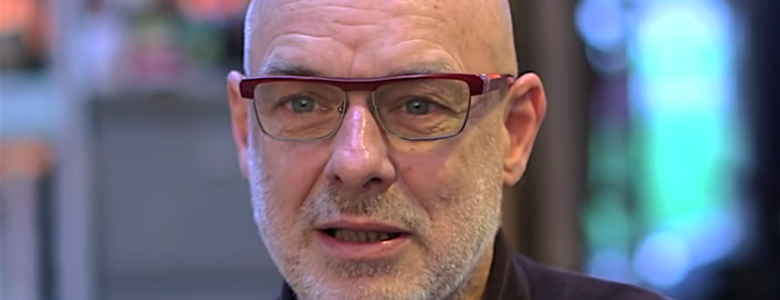
Message from Brian Eno on the US Presidential Election result
I’m relieved at the election result but not ecstatic: 70 million people voted for Trump after probably the most disastrous four years in US history!
That is mind-blowing to me. And the Republicans strengthened their grip on the levers of power: they’re in a better position now than they were a week ago.
If I were a Republican strategist I’d be rubbing my hands with glee: NEXT time it’ll be a pushover. All they have to do is run a more acceptable neo-fascist, somebody smarter and hipper and not so obviously bonkers. Somebody like Charles Lindbergh, for example.
And if I were a Democrat strategist (though I’m starting to doubt they even exist) I’d be doing everything possible to covertly keep Trump afloat, tucked away safely in some corner with his own TV channel, but afloat nonetheless, and then encourage him to run again in 2024. Why? Because we need him to split the vote when the inevitable Lindbergh turns up.
None of the conditions that gave rise to Trump have changed, and nor will they in 4 compromised years with an administration whose primary aspiration seems to be ‘back to normal’. In 4 years the scenario will repeat, and Trump is currently our main hope for scuppering it.
Trump was the most effective President in history. Unfortunately the effects were nearly all bad, and Biden will get the blame for them as they work their way through the system. Then Lindbergh will appear to save the day.
So I hope I can count on a couple of quid from each of you for my ‘TRUMP 2024’ campaign…

Fighting words: Attention to language in an age of extremes
We must pay attention to what words are used amidst a dangerous normalisation of propaganda and alternative facts
Words are counterposed to action, seen as confined to the realm of debate, and the terrain of philosophers and speaking events. The phrase ‘only words’ is generally used to criticise and dismiss (‘talk is cheap’; ‘all talk and no action’). But as the word ‘propaganda’ attests, the power of words as incentive to action — and in this way even a form of action — is also well known.
Language serves diverse purposes. This is why it is challenging to stay alert to its multiple uses in the digital age, in increasingly unequal societies in which privilege is rationalised and deflected by corporate PR speak, and amid the normalisation of ‘alternative facts’.
Revisiting the language of ‘choice’
The co-option of choice through the use of a language of choice (‘just do it!’; ‘because you’re worth it!’) is now a well-honed strategy. It is so constantly deployed by corporate interests in western so-called democratic societies, it has become as common as the air we breathe. This also means that its function of deflecting attention from the structural constraints which impede the exercise of viable choice can remain hard to recognise (even as survival is increasingly at stake for vast sections of whole populations).
The language of individualism that underpins the western political tradition continues to be a gift to rapacious oligarchical interests. In the current gilded age of neoliberalism, it has been contorted and exploited beyond the intentions and wildest imaginings of Adam Smith and Enlightenment thinkers of the eighteenth century: “Were Voltaire to reappear today, he would be outraged by the new structures, which (…) deformed the changes for which he struggled.”
As the margin for economic choice widens exponentially for minority interests, it is not so much eroded, as dissolved completely for countless of the world’s population who can only ‘choose’ subsistence. This is within as well as outside ostensibly advanced or developed societies. The co-option of language in perpetrating these grotesque disparities needs more attention.
The co-option of terms undermines climate and environmental policy
It is not only human life which is at stake in the co-option of language by the marketing of multi-million dollar interests and industries. Just as companies which flag support for the Black Lives Matter movement on their websites continue to deny basic wages and safe employment conditions to the workforce on which they rely, so the EU is now using the language of the ‘green new deal’ — a co-option described as ‘greenwashing’ — to deflect attention from the continuation business as usual.
The world literally burns as governments, organisations and institutions — as much as the marketing campaigns of corporations — spin the linguistics of their PR heists.
The familiarity of language and labels which are co-opted (whereby the contrasting interests they serve are concealed) is insidious. This is especially true when the initial and original progressive connotations of terms are literally capitalised on to further interests which are diametrically opposed.
Seemingly neutral language — in contrast to that which is openly ideological — is difficult to recognise as problematic. The weaponisation of words can be so covert as to be barely detectable. They often serve as a cover through the use of certain terms that can continue to reassure even as they advance oligarchical agendas and we are being encouraged to look away.
The weaponisation of words in neoliberal style
The deceptively simple sophistication of well-funded marketing campaigns is not new. Nor is economic inequality (which “everybody knows” as Leonard Cohen intones in a now classic track). But precisely because it is a cliché, `the rich get richer’ can contribute to resignation rather than to the concerted measures required in response. It also deflects attention from the policies and processes which allow now unprecedented socioeconomic disparities to escalate.
The weaponisation of language — and the activating or pacifying potential of single words — is pivotal to the mechanisms and means by which sectional interests are furthered at the expense of the public they purport to serve.
Thus words become weaponised in ways we need to recognise in order to intercept. The globalised and digital age also presents additional challenges to those prefigured by Lewis Carroll: “When I use a word,” Humpty Dumpty said in rather a scornful tone, “it means just what I choose it to mean — neither more nor less.”
Marshall McLuhan’s dictum that ‘the medium is the message’ has new implications in today’s increasingly polarised mediascape where the capacity of corporate and sectional interests to monopolise platforms of communication has increased. Through the Looking Glass is now refracted through multiple angles:
“The question is,” said Alice, “whether you can make words mean so many different things.”
“The question is,” said Humpty Dumpty, “which is to be master — that’s all.”
In the current period of austerity for the many and socialism for the few, the language of ‘winners and losers’ — determined by ostensibly ‘free’ and ‘democratic’ societies — has displaced the language of masters and slaves. But it has not replaced the inequality which proliferates at truly staggering levels, and which is upheld to a significant degree by the words used to describe — i.e. disguise — it.
New words, old words, and the language of power
New words, and new applications of words, which describe but also obfuscate the exercise of power (such as ‘rendition’) are entering public discourse. ‘Collateral damage’ — where ‘damage’ means injury or death to civilians and ‘collateral’ equates to human beings — is a term which is now familiar. Notably, as in the case of `rendition’, the term is sanitised, leached of emotional impact, and thereby deflects attention from the enormity of what it entails.
Familiar words like ‘controversy’ and ‘conspiracy’ can also be put to different uses and applied in nefarious ways. For example, what is no longer supported by evidence can be implied to be controversial for the purpose of upholding corporate interests. An early example is the harmful effects of smoking when it became impossible to deny the link to lung cancer. Rather than ceding to the evidence, tobacco companies implied the link to be dubious by labelling it ‘controversial’ This is a strategy and phenomenon that is now rampant. The term agnotology was coined by Stanford University professor Robert Proctor to describe exactly such attempts to sow public confusion and doubt.
The use of the word ‘conspiracy’, as an accusation rather than simple description, is also complex and high-stakes. At one level it describes bizarre theories and beliefs for which there is no foundation. But it can also be used as a silencing strategy to deflect attention from activity which may seem to lack credibility but which does and continues to occur. As Marshall McLuhan underlined, “Only puny secrets need protection. Big discoveries are protected by public incredulity.” An important distinction needs to be made between movements and claims which are fabricated and use of the word ‘conspiracy’ to silence legitimate attempts to draw attention to abuses of power.
More words to watch out for
There are many words and phrases we should not let go to the keeper. Chomsky warned years ago that actions taken in `the national interest’ should attract close scrutiny. Similarly, current policies in the name of `public health’ with respect to the coronavirus should not be taken at face value.
Words like ‘sovereignty’ and ‘terrorism’ should be carefully examined (the former because it is so often invoked to deflect from human rights violations and the latter because it is so selectively applied). We need to remember that there is a such a thing as state terrorism, which is exemplified today by the government-sponsored attacks on peaceful protestors we are witnessing in cities around the world.
Yet the term ‘terrorism’ is routinely individualised. In western societies the term is also routinely applied to ‘Muslim fundamentalists’ rather than to white supremacists (who are often home-grown and who are described in a current podcast by American documentary filmmaker Michael Moore as ‘the terrorists next door’).
The individualist bias of western societies — which is reflected in language that deflects from structural factors and context and which is the legacy of the western tradition itself — also defines what violence in the west is considered to be. That is, the actions of a lone individual actor/s — eg. the man with the gun — rather than the product of structural, systemic and also linguistic practices which embed and perpetuate social, political and economic inequality on a large scale. The distinction between ‘human’ and ‘humane’ (terms which are often conflated and used interchangeably) also needs to be maintained.
The words we use matter because they structure the way we think
In his best-selling treatise On Tyranny, Timothy Snyder notes “the narrowing of vocabularies, and the associated difficulties of thought.” The importance of critical thinking at this time — of thinking through cliches and slogans that discourage the attention they should attract — cannot be overstated.
Reflecting on the horrors of Nazism, Hannah Arendt noted the lack of mental and conceptual preparation for discussion of moral issues on the part of those who might have been expected to provide it: “We had to learn everything from scratch, in the raw, as it were — that is, without the help of categories and general rules under which to subsume our experiences.”
Intellectuals and politicians of the thirties were no better equipped than the general population to address the urgent challenges of their time. We cannot look to authorities to provide the guidance or answers for which we need to develop and hone our own critical faculties; despite all that would discourage this. This is especially when so many authorities are themselves implicated in, if not active perpetrators of, the very policies and actions which need to be criticised.
In fighting the oligarchies of today we are in good company
In the face of the current travesties of justice (of which the extradition hearing of Wikileaks founder Julian Assange is key) the rewording of the term to `just us’ is striking and apposite. Robust responses are called for; and as Yanis Varoufakis points out, we need to become as organised as the oligarchical right in opposing the considerable interests ranged against us. As Ece Temelkuran notes in How to Lose a Country, “we have to come to terms with the fact that there can be no understanding without action (namely political action).”
Final word to Canadian philosopher and public intellectual John Ralston Saul, who was unequivocal nearly two decades ago that Voltaire would be `outraged’ by what has subsequently occurred in his name. These are occurrences we may well see as reaching horrific culmination in the current period: “As for his descendants — our ruling elites — he would deny all legal responsibility and set about fighting them, as he once fought the courtiers and priests of 18th century Europe.”
Photo Source: Photo by Digital Buggu from Pexels.
The views and opinions expressed here are those of the author and do not necessarily reflect DiEM25’s official policies or positions.
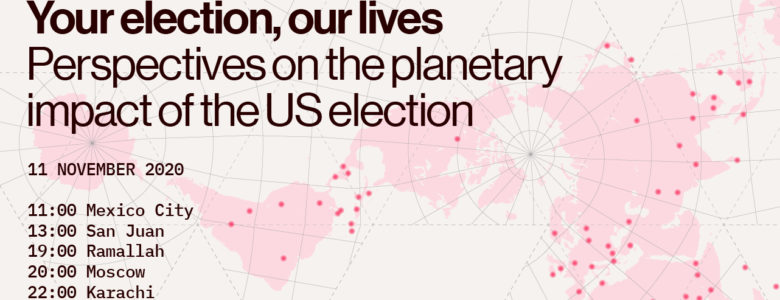
The Progressive International hosts #YourElectionOurLives
Your Election, Our Lives! On the planetary impact of the US election.
From Mexico to Palestine, the US election will have an impact far beyond its borders. This is why the Progressive International (PI) launched a campaign called #YourElectionOurLives that empowered their members to share their experiences about how the US elections impacts their lives. Participants recorded short videos explaining how the US elections will impact theirs lives as well as those of their loved ones.
Now, the PI brings together MPs & activists from around the world to discuss the planetary impact of this historic election.
MARK YOUR CALENDAR: #YourElectionOurLives will be held on 11 November.
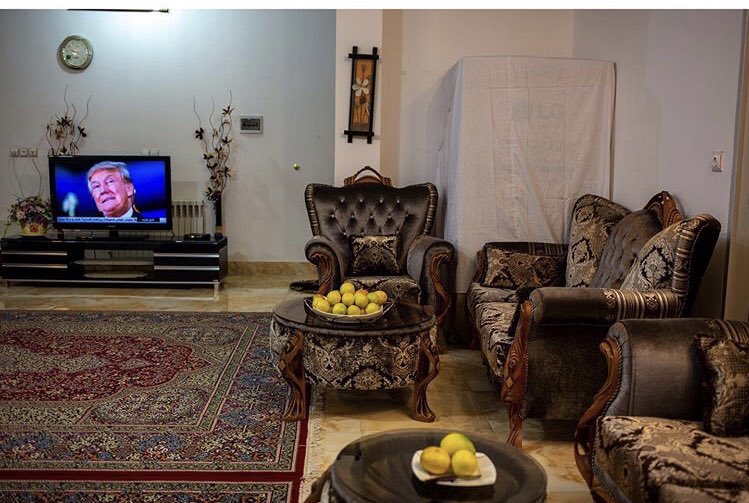
Photo: Alex Shams’ contribution to #YourElectionOurLives, writing “It’s a strange thing watching the US elections from Iran. It’s like the whole country is holding their breath, waiting to see what happens, knowing that the fate of their loved ones rests on the choices made a few thousand Americans in a couple of counties in Pennsylvania.”
The incredible line-up for next Wednesday’s event will include:
- Tatiana Clouthier, Diputada Federal, Mexico
- Guillaume Long, Former Foreign Minister, Ecuador
- Dr. Yara Hawari, writer and activist in the Palestinian feminist movement Tal3at
- Ammar Ali Jan, Haqooq-e-Khalq Movement, Pakistan
Find out more and register here!
Photo Source: Contribution to #YourElectionOurLives on Twitter by Alex Shams.
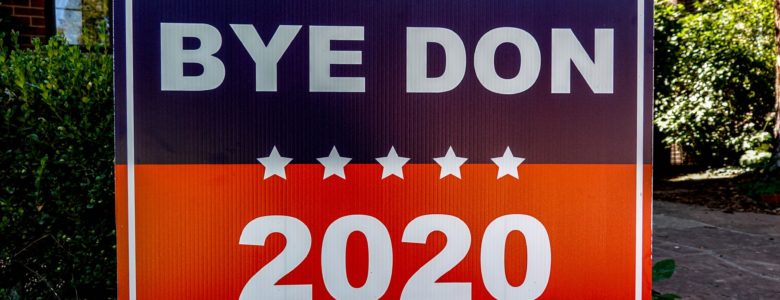
Hoping for a return to normal after Trump? That’s the last thing we need
The discontent that swept Trump to power in 2016 has not gone away. To pretend like it has will only invite future disaster.
Normalcy and the restoration of a modicum of decorum to the White House: that is what many elite supporters of Joe Biden hope for now that he has won the election. But the rest of us are turned off by this meagre ambition. Voters who loathe Trump celebrate his loss, but the majority rue the return to what used to pass as normal or ethical.
When Trump contracted COVID-19, his opponents feared he might benefit from a sympathy vote. But Trump is not a normal president seeking voters’ sympathy. He doesn’t do sympathy. He neither needs nor banks on it. Trump trades on anger, weaponises hatred and meticulously cultivates the dread with which the majority of Americans have been living after the financial bubble burst in 2008. Obscenities and contempt for the rules of polite society were his means of connecting with a large section of American society.
The reason 2008 was a momentous year wasn’t just because of the magnitude of the crisis, but because it was the year when normality was shattered once-and-for-all.
The original postwar social contract broke in the early 1970s, yielding permanent real median earnings stagnation. It was replaced by a promise to America’s working class of another route to prosperity: rising house prices and financialised pension schemes. When Wall Street’s house of cards collapsed in 2008, so did this postwar social contract between America’s working class and its rulers.
After the crash of 2008, big business deployed the central bank money that refloated Wall Street to buy back their own shares, sending share prices (and, naturally, their directors’ bonuses) through the stratosphere while starving Main Street of serious investment in good-quality jobs. A majority of Americans were thus treated, in quick succession, to negative equity, home repossessions, collapsing pension kitties and casualised work — all that against the spectacle of watching wealth and power concentrate in the hands of so few.
By 2016, the majority of Americans were deeply frustrated. On the one hand, they lived with the private anguish caused by the permanent austerity to which their communities had been immersed since 2008. And, on the other, they could see a ruling class whose losses were socialised by the government, which defined the response to the crash.
Donald Trump simply took advantage of that frustration.
And he did so with tactics that, to this day, keep his liberal opponents in disarray. Democrats protested that Trump was a nobody, and thus unfit to be president. That did not work in a society shaped by media which for years elevated inconsequential celebrities.
Even worse for Trump’s opponents, portraying him as incompetent is an own goal: Donald J Trump is not merely incompetent. George W Bush was incompetent. No, Trump is much worse than that. Trump combines gross incompetence with rare competence. On the one hand, he cannot string two decent sentences together to make a point, and has failed spectacularly to protect millions of Americans from COVID-19. But, on the other hand, he tore up Nafta, the North Atlantic Free Trade Agreement that took decades to put together. Remarkably, he replaced it swiftly with one that is certainly not worse — at least from the perspective of American blue-collar workers or, even, Mexican factory workers who now enjoy an hourly wage considerably greater than before.
Moreover, despite his belligerent posturing, Trump not only kept his promise to not start new wars but, additionally, he withdrew American troops from a variety of theatres where their presence had caused considerable misery with no tangible benefits for peace or, indeed, American influence.
Trump’s opponents also frequently called him a liar. But Trump is not simply a liar. Bill Clinton lied. Again, Trump is far worse. He has an ability to spew the most incredible untruths, while, at the very same time, telling crucial truths that no president would ever admit to. For example, when accused that he was de-funding the post office for electoral gain, he destabilised his accusers by admitting that, yes, he was restricting funding to USPS to make it harder for Democrats to vote.
Trump’s rudeness to his opponents, however disagreeable, might have even brought some relief to the forgotten Americans who associate Biden’s politeness with the gentle mercies that the former vice-president reserves for Wall Street and the super-rich who bankrolled his campaign. Not unreasonably, they see Biden as a polite emissary of the bankers who repossessed their homes and, at once, a member of an administration that bailed out — with public money — those same bankers.
They hear Biden’s sleek, well-mannered speeches about unity, respect, tolerance and bringing citizens together and they think “no, thanks, I don’t want to be united with, or tolerant of, those who got rich by shoving me in a hole”. To them, Trump’s behaviour is an ugly but welcome manifestation of solidarity with ordinary folks who feel empowered by the combination of the president’s vulgarity and his evocations of America’s irrepressible greatness — even if, deep down, they never expected their prospects to improve significantly when America becomes “great again”.
The tragedy of progressives is that Trump’s supporters are not entirely wrong.
The Democratic party has demonstrated time and again its determination to prevent any challenge to the powerful that are responsible for the pain, anger and humiliation that propelled Trump to the White House. Democrats can talk until the cows come home about racial justice, the need for more women in positions of power, the rights of the LGBT community etc. But, the moment politicians like Bernie Sanders threaten to challenge the power structures that keep black Americans, women, minorities and the poor in society’s margins, they go all out to stop them.
Trump’s supporters are unlikely to articulate this in so many words. However, their contempt for the liberal establishment is rooted in the realisation that the rich Democrats behind the Biden-Harris ticket won’t ever truly change conditions for the poor. Any redistribution of wealth and power that threatens their kids’ trust fund, or soaring asset prices on Wall Street, are off-limits — and those voters know that.
Against this background, however hard Biden tries to speak the language of some Green New Deal, no one can imagine him uttering a phrase like Franklin Roosevelt’s, who referring to bankers once said: “They are unanimous in their hate for me — and I welcome their hatred.” Without a readiness to confront the greatest concentration of corporate power in the history of the United States, even the most amiable of presidents will fail to deliver either social justice or serious climate change mitigation. At least Trump wasn’t hypocritical, his supporters might say.
So yes, Joe Biden has won. And thank goodness for that. But let’s understand that he did so despite, not because of, his social graces or promise to restore normality to the White House. The confluence of discontent that powered Trump to power in 2016 has not gone away. To pretend like it has is only to invite future disaster – for America and the rest of the world.
This article was originally published in The Guardian.
Photo Source: mana5280 on Unsplash.
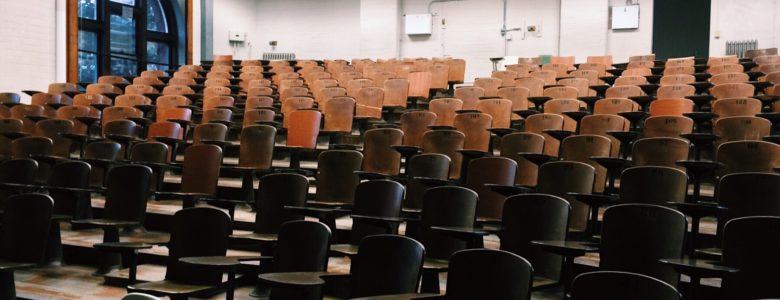
Academic freedom in the context of France’s new approach to ‘separatism’
From now on, academic freedom will be exercised within the limits of the values of the Republic. Or not.
For months, France has been severely weakened by a deepening economic crisis, violent social tensions, and a health crisis out of control. The barbaric assassination of history professor Samuel Paty on 16 October in a Paris suburb and the murder of Vincent Loquès, Simone Barreto Silva, Nadine Devillers in the Notre-Dame basilica in Nice on 29 October have now plunged the country into terror.
Faced with the dismay aroused by these events, the French government, instead of leading the effort of collective elaboration of the mourning and ensuring the unity of the country, seems to be entirely focused on silencing any attempt at collective reflection, exploiting collective emotion and pointing out the culprit, or, better yet, the culprits.
In the narrative of the French government, there are two direct or indirect sources responsible for the resurgence of terrorism: abroad, the foreign powers which finance mosques and organizations promoting the separatism of Islamic communities, and consequently — as is only logical on the perpetually slippery slope of Macronist propaganda — terrorism; at home, it is the academics.
If the relationship between the October attacks and the Franco-Turkish tensions that have been intensifying for months deserves to be investigated, the relationship that the government tries to find between the role of academics and the attacks is in our opinion, an unworthy exploitation, aimed only at discrediting the category of academics engaged in recent weeks in a desperate struggle to prevent the passing of a Research programming law, which violently redefines the methods of funding and management of research projects, the status, the prerogatives as well as the academic freedom of university professors.
Regaining control?
“A teacher died and other teachers are being blamed for it” wrote the sociologist Eric Fassin, alluding to a long series of attacks that have been reiterated in recent months on the French university community – a community guilty, according to Macron and his collaborators, of excessive indulgence in the face of “immigration, Islam and integration”.
“I must regain control of these subjects”, said Emmanuel Macron a year ago to the extreme right-wing magazine Valeurs Actuelles. A few months later, in the midst of a worldwide struggle against racism and police violence, Macron, scandalized by the winds of revolt — rather than by racism and police violence in themselves — explained to Le Monde that:
“The academic world has been guilty. It has encouraged the ethnicization of social issues, thinking that this was a good path to go down. But the outcome can only be secessionist.”
The Minister of National Education Jean-Michel Blanquer, presenting in June 2020 to the Senate’s commission of inquiry on Islamist radicalization, had evoked for his part, “the permeability of the academic world with theories that are at the antipodes of the values of the Republic and secularism”, citing specifically “the indigenist theories”.
A few days after the homicide of Samuel Paty, in an interview with Europe 1, the minister accused academics of “intellectual complicity with terrorism”, adding that “Islamo-leftism wreaks havoc in the University”… “favoring an ideology that only spells trouble”. Explaining himself further in Le Journal Du Dimanche, on October 24, Blanquer reiterated these accusations, specifying: “There is a fight to be waged against an intellectual matrix coming from American universities and intersectional theses that want to essentialize communities and identities, at the antipodes of the Republican model, which postulates the equality between human beings, independently of their characteristics of origin, sex, religion. It is the breeding ground for a fragmentation of societies that converges with the Islamic model”.
A Darwinian law.
Such accusations and interferences have provoked many reactions of indignation, including that of the Conférence of University Presidents. However, nothing was sufficient to see the attack off. On Friday evening, after the launch of a fast-track procedure that effectively muzzled the debate, the Senate approved the research programming law.
In many respects, this is the umpteenth banal neo-liberal, or, more exactly, admittedly Darwinian, reform of the French university. It has included the precarisation of the work of teachers, concentration of the funds on a limited number of “excellent” poles and individuals, promotion of competition between individuals, institutions and countries, strengthening of the managerial management of research, weakening of national guarantee structures and, more generally, weakening of self-governance bodies.
But this law also contains a clear and astounding plan to redefine the respective roles of science and politics. The article of the law currently in force, which very effectively and elegantly defined the meaning of academic freedom:
“Teacher and researchers enjoy full independence and complete freedom of expression in the exercise of their teaching functions and their research activities, subject to the reservations imposed on them, in accordance with university traditions and the provisions of this code, the principles of tolerance and objectivity”, has been amended by the addition of this sentence:
“Academic freedoms are exercised with respect for the values of the Republic”
This addition which is in itself an outrage against the principles of the separation of powers and academic freedom has been joined by an explicit reference to the events of these days:
“The terrible tragedy in Conflans-Sainte-Honorine shows more than ever the need to preserve, within the Republic, the freedom to teach freely and to educate the citizens of tomorrow”, states the explanatory memorandum. “The purpose of this provision is to enshrine this in law so that these values, foremost among which is secularism, constitute the foundation on which academic freedoms are based and the framework in which they are expressed.”
The emotion engendered by the murder of innocent people was therefore well and truly exploited in an ignoble manner to serve the anti-democratic objective of limiting academic freedoms and setting the choices of the subjects to be studied, as well as the “intellectual matrix” to be adopted under the surveillance today of the presidential majority and tomorrow, who knows?
To confirm this reading of the priorities of the majority and the fears it arouses, on Sunday 1 November, Thierry Coulhon, adviser to the President of the Republic was appointed, through a “Blitzkrieg”, head of the Haut Council for the Evaluation of Research and Higher Education (Hceres), the national body responsible for the evaluation of research.
A few details of this law, including the amendment on the limits of research freedom, may still change in the joint committee to be held on November 9. But the support of academics, individuals, organizations, scholarly journals, for the Solemn appeal for the protection of academic freedom and the right to study is now more urgent and necessary than ever.
DiEM25 defends the freedom of science from any political interference, expresses support for the fight of French academics and invites signatures for the appeal on the protection of academic freedoms.
Paola Pietrandrea is a franco-italian academic and member of the Peace and International Policy DSC.
Sign the petition!
This article was originally published in OpenDemocracy.
Photo Source: PixaBay.
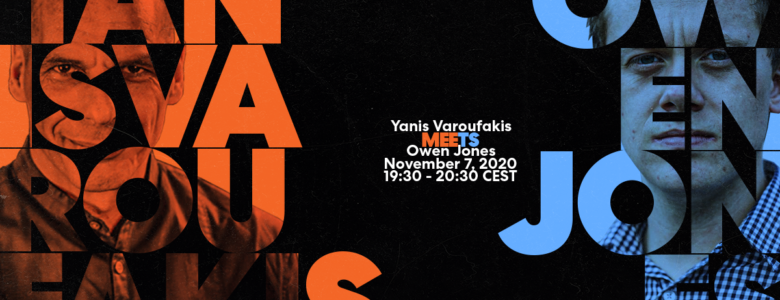
Yanis Varoufakis meets Owen Jones
The global crisis of COVID-19 presents an opportunity for a radical rethink of Britain as we know it.
Whether exposing Britain’s powerful elites in The Establishment or defending the white working class in Chavs, fighting for equality and social justice as a Guardian columnist and broadcaster, Owen Jones may be the most influential and widely respected political journalist of his generation.
In this livestream event with DiEM25 co-founder Yanis Varoufakis, he’ll give an unflinchingly honest, insider’s account of Labour’s electoral defeat last year — and explore where the Left can go next in the new world we find ourselves in. We have the opportunity to build a fairer country and a more equal world, but if our time is to come, then we must learn from our past. Owen says:
“if there’s anything I’ve learned from my family’s decades of political commitment, it’s that history is not linear, a tale of victories followed by successes and yet more victories; but often defeats, setbacks, followed by victories, then more defeats and setbacks. Finally, you might get somewhere approximating to where you’re going to. It’s called a struggle for a reason.”
This event takes place at 18:30 GMT / 19:30 CET and includes access to a replay video available 48 hours after the event to enjoy with no time limit. Register here!
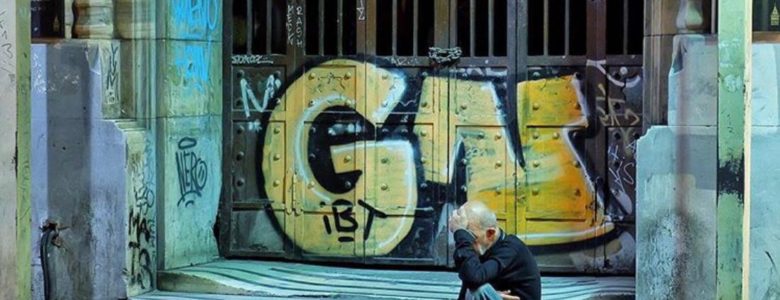
News from Turkey: Regional wars, boycotts and COVID-19
The Provisional National Collective in Turkey is pleased to inform DiEM25 members with the third issue of a monthly review on Turkey’s social, economic, and cultural state of affairs.
Regional wars continue around Turkey.
Concerning the Iraq-Syria border, the Turkish parliament on 7 October ratified a motion extending authorization to launch cross-border operations in northern Iraq and Syria.This allows the Turkish military to continue cross-border operations in northern Iraq and Syria for another year, from 30 October, 2020 until 30 October, 2021. Turkey has launched three cross-border operations into Syria since 2016, announcing its plans to establish a “safe zone.” The “safe zone” comprises areas under direct Turkish rule – Tel Abyad, Jarablus, and Afrin as well as Idlib, which is under Turkey’s military protection.
Concerning the Azerbaijan-Armenia war, the Turkish government supports Azerbaijan, criticizes Armenia as occupier and indicates that Yerevan is obstructing a possible peace. Both sides have outside aircraft, weapons and logistical support. This war can harm the native Armenians in Turkey as they are already vulnerable; threats and hate speech are growing during the ongoing clashes between Armenia and Azerbaijan. The Center for Eurosian Strategic Studies (ASAM) has recently released a statement in the newspapers accusing the Peoples’ Democratic Party (HDP) politicians — especially Garo Paylan, the party’s Armenian MP — of treason. In response, Paylan is favoring peace and will file a criminal complaint against ASAM’s hostile statement.
Tensions have eased slightly, with Turkey and Greece agreeing to resume long-stalled talks, but Ankara still has its economic and national interests in Cyprus and in Cypriot waters.
Turkey and France, NATO members, have been in ongoing conflict about the militaristic activities of Turkey in Syria and Libya, the maritime jurisdiction in the eastern Mediterranean, and the conflict in Nagorno-Karabakh. President Recep Tayyip Erdoğan sharply criticized President Emmanuel Macron on 24 October, saying the French leader needed a mental health check, prompting France to recall its ambassador from Ankara.
On 26 October, Erdoğan urged a boycott of French products.
The leader of the main opposition in Turkey, the Republican People’s Party (CHP)’s Kemal Kılıçdaroğlu, then urged First Lady Emine Erdoğan to burn her Hermes handbag following President Recep Tayyip Erdoğan’s call to boycott French goods and trademarks. Due to this, the bag became a trending topic on Twitter. Later, it was announced that the bag is actually fake. During his speech, the CHP leader said that there are people who cannot even afford to buy bread, and there are fathers committing suicide because they cannot support their families financially. Therefore, he characterised the calls for a boycott as meaningless, and suggested that first of all, the Erdoğan Family should be the one who should lead the boycott against the French products.
Turkish opposition parties; CHP, IYI Parti and others have been working on a wide-ranging alliance program for the upcoming elections.
The program will include promises on various issues, including the justice system and civil freedoms. The parties are also planning to include a guide to the return to an enhanced parliamentary system, according to sources. This guide consists of eleven steps like: i) Party-Free President ii) Easy-Established Government iii) Ministers with applied power iv) Commission of accountability v) Functional Court of Account, etc.
The opposition competed in the 2018 elections as the Nation Alliance, which included the main opposition Republican People’s Party (CHP) and the Good (İYİ) Party. Although not officially a part of it, the Peoples’ Democratic Party (HDP) also backed this alliance against the government one. Turkey’s three opposition parties have denounced a recent proposal by the ruling Justice and Development Party (AKP) for the establishment of the Turkey Environmental Agency, which they claim will pave the way for corruption and nepotism.
“A new public institution (Turkey Environmental Agency/KA) is being established with a lot of authority, staff and budget without responsibility and with financial exemptions. It runs parallel or even rivals the Ministry of Environment and Urban Planning in terms of its inspection authority but is exempt from both internal and external inspection,” said the main opposition Republican People’s Party (CHP) in a written parliamentary evaluation.
According to the oppositions the legal entity of this public institution, the quality of human resources and procurement methods are against the several articles of the Constitution. While the amendments were made, sufficient opportunities were not provided for the public announcement of the draft law and for the relevant non-governmental organizations, trade associations and trade unions to express their opinions.
Syrian refugees used as negotiation ‘tools’.
Currently, there are over 4 million Syrians, 2.5 million Afghans, Iranians, Iraqi, African, Caucasian, Central Asian, registered and unregistered migrants and refugees. The refugees are constantly made the subject of negotiation with the EU. In February 2020, with a new conflict between the EU and Turkey, the authorities opened the border and caused more tragedies. In the current pandemic, their health conditions have not been officially disclosed. This situation has unfortunately caused toxic nationalism, anti-refugee and anti-EU sentiment to rise.
The Halkların Demokratik Partisi (HDP) – Peoples’ Democratic Party court cases continue as they lose electoral districts.
On 2 October, 17 people, including Kars Mayor Ayhan Bilgen, have been arrested as part of the Kobane investigation launched by Ankara Chief Public Prosecutor’s Office due to a possible place in the events of Kobane. The police intervened to those who objected to the arrest warrant, lawyers were not included in the hearing at Ankara courthouse. The Ministry of Interior appointed a trustee to Kars Municipality. In 2014, there were violent protests against the siege by ISIS of the Syrian Kurdish town of Kobane. Out of the 65 municipalities that the Peoples’ Democratic Party (HDP) won in the March 2019 local elections, the party as of 2 October holds only six districts.
The president’s judicial reform amendment is not enough to curb bias and corruption in Turkey’s justice and parliamentary system.
The presidency’s judicial reform amendment package with generalized issues is adopted by parliament. But these amended measures have not addressed the deep and omnipresent deficiencies in Turkey’s justice system. The presidential system doesn’t work due to it being based on personal, arbitrary practices, rather than institutional norms. At the same time, decrees are issued constantly, and these are bypassing the parliament. Then, decrees are issued that abolish those decrees.
An exiled Turkish journalist continues to be persecuted.
An Istanbul court announced that Can Dündar, an exiled Turkish journalist living in Germany, would be declared a fugitive and his assets would be seized unless he returns to the country within 15 days, according to news reports. “Journalist Can Dündar has already paid a high price for his independent journalism, including being forced to leave his homeland behind,” said Gulnoza Said, CPJ’s Europe and Central Asia program coordinator, in New York. “Turkish authorities should immediately revoke today’s court decision to seize the journalist’s assets in Turkey, and cease such vengeful persecution for his critical journalistic work.” In a tweet about the court’s decision, Dündar wrote that authorities were threatening to seize a family home where his mother still lives.
As political, economic and social problems are getting deeper, COVID-19 conditions have caused heightened restrictions to be implemented in Turkish society.
According to the report of The Ministry of Health on 25 October on the COVID-19 pandemic: Since the first coronavirus cases from March 11, 2020 a total of 362,800 patients were registered; 49% were women and 51% were male. Of the 9,799 people who died, 62% (6062) were men and 38% (3737) were women. 7105 patients who died ( 73%) were over 65 years old; only 11% of the patients over 65 old were cured.
Currently, in many cities with a high number of patients, the doctors and health care staff are not allowed to resign or to take time off. The schools are due to open soon with restricted days and hours.
As structural problems are getting deeper with populist discourses, especially citizens with a secular world view are marginalized, objectified and targeted with hate speech. Despite this climate, organised groups and institutions are demanding universal standards of law.
Photo Source: İstanbul 1 DSC Volunteer, Kürşat Oral.